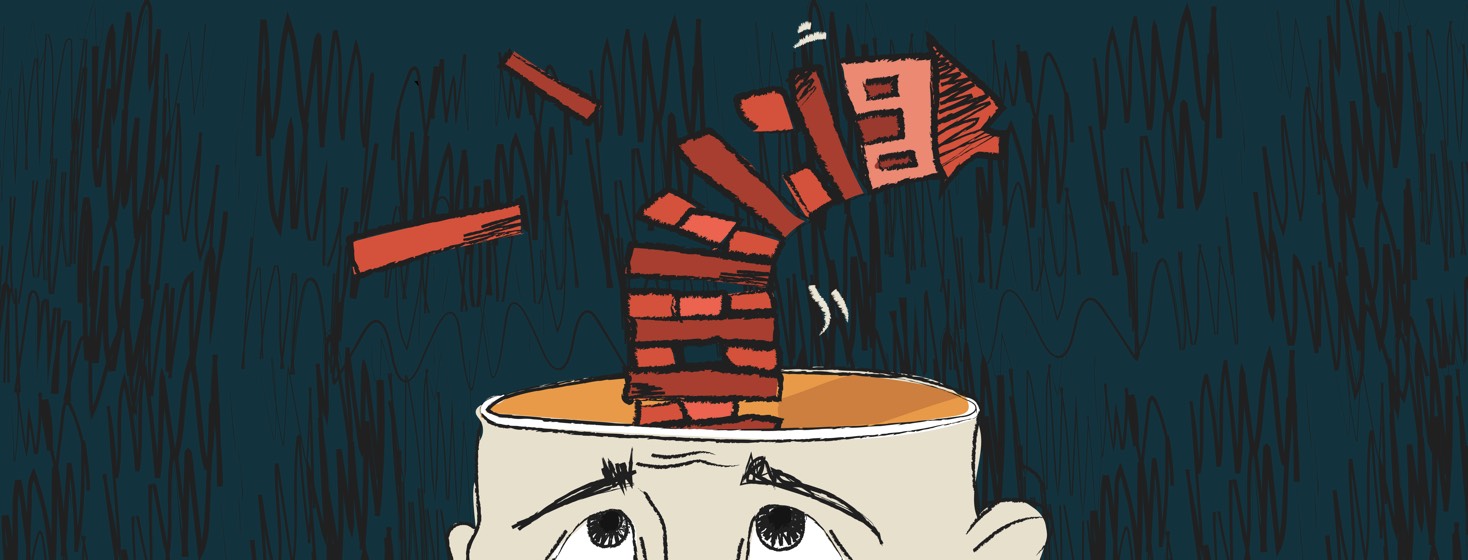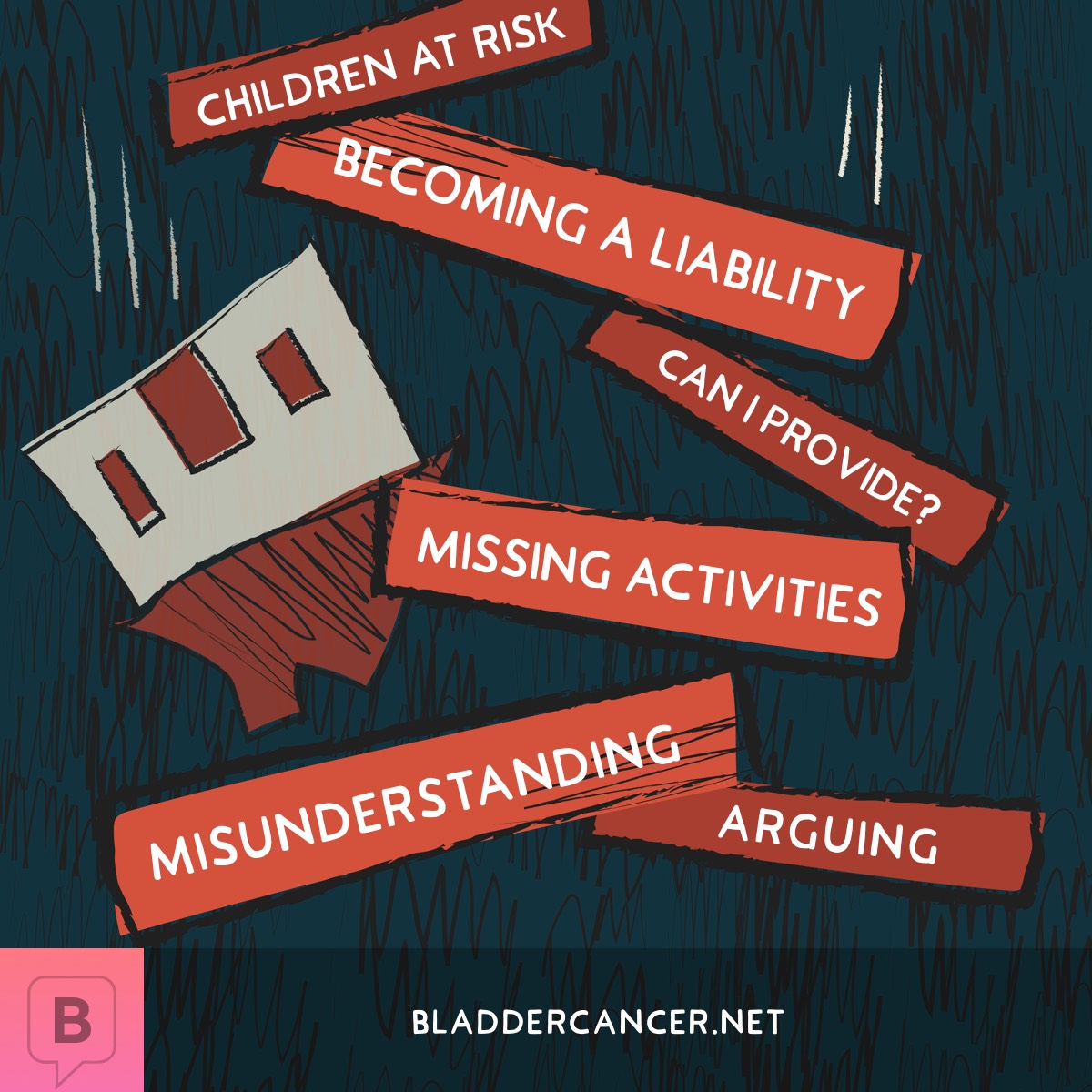Bladder Cancer Anxieties: Relationships & Family
In this series, we discuss causes of anxiety for those facing physical illness and its side effects. Phrases in bold are the words of our community members across various conditions on what it's like to deal with these anxieties.
When you ask anyone what’s most important, they’ll often put family and friends at the very top. Mutual support is an important part of a relationship: you can support them when they’re in need, and they can, in turn, be there for you. This becomes a lot more complicated when an illness like cancer gets in the way. It can make it harder to be there for others when you want to be, and harder for them to understand what you need.
Sources of anxiety
Community members mentioned tensions with partners and other family members, fear of their children's increased risk of developing their condition, feeling like a burden, and much more:
“My family don't understand” / “family will get tired of me”
Some feel that their condition is downplayed by their family, or that they understand some challenges but not others. They may be able to understand physical symptoms or side effects, but be less understanding of the emotional toll. It can be hard to talk to a family member who doesn’t want to face your diagnosis or doesn’t believe what you’re telling them.
“Not being able to provide”
Many community members talked about letting their family members down, especially their children. Being a parent or grandparent is a big part of your identity, and it’s hard to admit that your relationships might change. When your adult children help to care for you, it can be hard to feel like you used to when you were in better health. Being sick and unable to spend time with grandchildren or younger children can also be painful to experience.
”The feeling of not being able to provide for my wife. She has to work when she should be retired.”
Navigating romantic relationships poses a different sort of challenge. If you’re the main breadwinner, you might feel pressure from others or yourself to be strong or tough and provide financially. If you’re dating or in a new relationship, there’s a whole lot of other expectations. Long-term relationships and married couples may fear changes in their relationship dynamic or their intimate relationships.
Seeking Support
It’s important to keep lines of communication open when you can. Many people described the love and support that comes from sharing their needs with those closest to them. There are times, however, when you may want to vent and connect farther from the pressure of home. Here’s a few ideas for finding support:
- Communities like ours and support groups and nonprofits for bladder cancer can be full of people who get how hard it is to balance family life.
- Not everyone is open to family and couples counseling, but for some it can help to gain perspective on the challenges you’re facing.
- Ask how your loved ones are feeling, and encourage them to seek support if they need it. Making sure they're taken care of can open communication and ease stress.
- A Letter to My Bladder Cancer Friends to read on a tough day
- What Makes Bladder Cancer Bearable to read about what helps others like you


Join the conversation